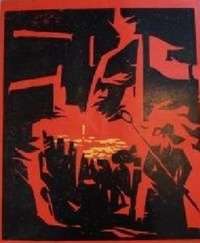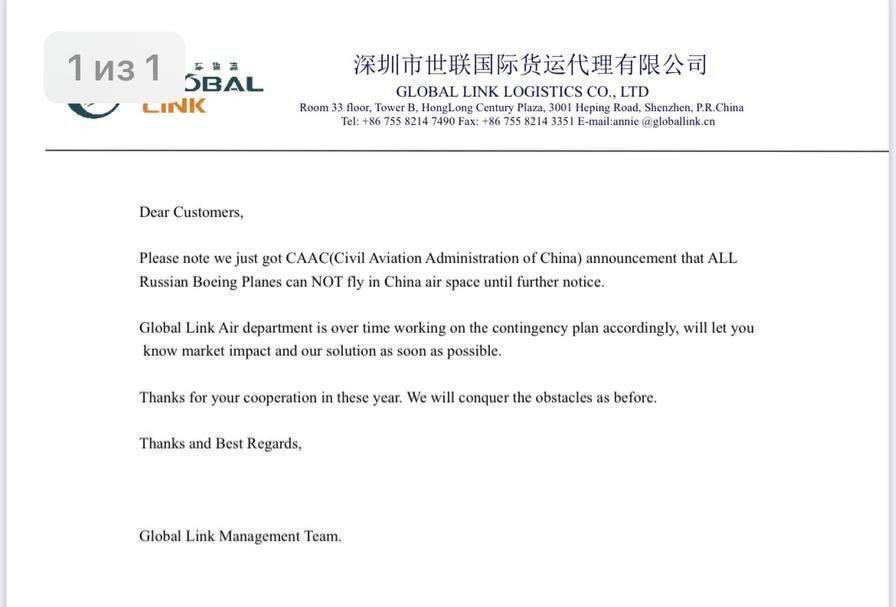The New Cold War

- Posts : 22555
Join date : 2014-12-01
- Post n°327
 Re: The New Cold War
Re: The New Cold War
Trampove carine su bile inicijalna kapisla za aktuelnu inflaciju. Medjutim, njihovo uklanjanje je sada samo kap u moru, jer se sve zakovitlalo.

- Posts : 7784
Join date : 2017-03-14
- Post n°328
 Re: The New Cold War
Re: The New Cold War
ma da Tramp je kriv i za rat u Ukrajini jer nije bacio nuklearku na Moskvu a to je zato što ga je Putin držao na uzici

- Posts : 22555
Join date : 2014-12-01
- Post n°329
 Re: The New Cold War
Re: The New Cold War
Ne, nego je uveo carinu na kinesku robu. Tamo mozda nemaju jasnu predstavu sta to znaci, jer su u moru kampanje, a idiot je konstantno pricao kako ce "Kinezi to platiti". Valjda ovde znamo sta je to - poskupljenje sve robe za (minimum) iznos carine i to placaju domaci potrosaci, tj. Amerikanci a ne Kinezi. A posto se iz Kine uvozi sve zivo, sve je poskupelo tada. Tako je krenulo.
U normalnim okolnostima relativne konkurentnosti carine na X su destimulans da tvoji potrosaci kupuju od X i da se ohrabre da kupuju od Y. Medjutim, posto je Kina daleko jeftinija od bilo koga drugog, sve izadje na to da prosto kupis manju kolicinu. Na primer, ako si za 100 dolara kupovao 5 majica, sada posle carina kupujes 4. Tako je i krenula inflacija. I kupovali su sve vise od Kineza, trgovinski deficit je nikad gori. Pa su na to natovarili korpogovnarije, pa objektivne probleme sa snabdevanjem, pa dugorocno nagomilane probleme sa stampanjem para...i evo nas.
U normalnim okolnostima relativne konkurentnosti carine na X su destimulans da tvoji potrosaci kupuju od X i da se ohrabre da kupuju od Y. Medjutim, posto je Kina daleko jeftinija od bilo koga drugog, sve izadje na to da prosto kupis manju kolicinu. Na primer, ako si za 100 dolara kupovao 5 majica, sada posle carina kupujes 4. Tako je i krenula inflacija. I kupovali su sve vise od Kineza, trgovinski deficit je nikad gori. Pa su na to natovarili korpogovnarije, pa objektivne probleme sa snabdevanjem, pa dugorocno nagomilane probleme sa stampanjem para...i evo nas.

- Posts : 672
Join date : 2016-04-16
- Post n°330
 Re: The New Cold War
Re: The New Cold War
Trampove carine su bile nebitne za svet, mozda je US poskupela hrana ne znam ali nije imalo nekog uticaja globalnog, prvo je pocelo kao problem logistike i poskupljenja prekomorskog transporta.

- Posts : 22555
Join date : 2014-12-01
- Post n°331
 Re: The New Cold War
Re: The New Cold War
Ja govorim o Trampovim carinama kao inicijalnoj kapisli koja je zakotrljala inflaciju. Nije joj uzrok, naravno, ali odatle su krenula poskupljenja.

- Posts : 672
Join date : 2016-04-16
- Post n°332
 Re: The New Cold War
Re: The New Cold War
Ne diraj mi Trampa i njegovo vrijeme ne krivi njega za svoje probleme, ukratko 


- Posts : 7331
Join date : 2019-11-04
- Post n°333
 Re: The New Cold War
Re: The New Cold War
https://www.ft.com/content/377cdb02-8a45-4ba2-b6ee-88620eb48f0b
China builds coalition to counter America’s ‘barbaric and bloody’ leadership
Beijing woos nations to join its Global Security Initiative that ‘respects each other’s sovereignty’
China’s president Xi Jinping has refused to condemn his Russian counterpart Vladimir Putin’s invasion of
Beijing could not have made its displeasure with Joe Biden any clearer. As the US president met leaders of the Quad security grouping in Tokyo, Chinese and Russian nuclear bombers flew over the Sea of Japan.
But China is also employing less crude tactics to counter the US in the form of a diplomatic drive. Just as Biden embarked on his Asian trip, Beijing began promoting its Global Security Initiative (GSI), a proposal for an alternative security order.
Floated by President Xi Jinping in April, the initiative is a collection of policy principles such as non-interference and grudges against US “hegemonism”.
Now Beijing is trying to entice other countries on board. In a video address to foreign ministers from the Brics grouping of big emerging economies on May 19, the Chinese president spoke of the myriad virtues of GSI.
Xi urged fellow Brics members Brazil, Russia, India and South Africa to “strengthen political mutual trust and security co-operation, . . . accommodate each other’s core interests and major concerns, respect each other’s sovereignty, security and development interests, oppose hegemonism and power politics, reject cold war mentality and bloc confrontation and work together to build a global community of security for all”.
Over the following days, Wang Yi, China’s foreign minister, extracted declarations of support for GSI from Uruguay, Nicaragua, Cuba and Pakistan. Indonesia and Syria have endorsed it, too.
The initiative is part of Beijing’s increasingly frantic efforts to oppose US-led blocs, which it blames for global conflict and tension.
Tian Wenlin, a professor for international relations at Renmin University in Beijing, described the western-led world order as “barbaric and bloody” and accused the US of dragging other nations into wars.
“Countries . . . are urgently clamouring for a new global security paradigm based on equality and mutual trust in the face of the rapid changes in the international landscape,” he wrote in a recent article. “As a result, the Global Security Initiative was designed to protect the security interests of a broader spectrum of people around the world.”
Beijing’s focus on security marks a departure from its traditional approach to international relations.
“Previously, when Chinese officials spoke about how the conflicts and security issues in the world would be resolved, the front foot was development. The answer was to provide prosperity to those troubled regions. But now there is a reprioritisation,” said Bates Gill, professor of Asia-Pacific security studies at Macquarie University.
This greater role played by security is evident in the Pacific, where China is rapidly expanding its influence at the expense of the western powers that have dominated the region.
On a tour of eight Pacific island nations over the coming week, Wang is proposing a co-operation deal covering everything from customs to fishing. But the first of the draft agreement’s eight articles focuses on security, including joint law enforcement and cyber security.
M Taylor Fravel, director of the Security Studies programme at MIT, said the initiative was part of China’s attempts to delegitimise the global role of the US.
“I think their focus would be mainly on states from the developing world,” he said. “This is clearly a huge priority for China, especially in the light of its alienation of most of Europe.”
Chinese diplomats have been promoting the GSI in developing countries including India, the Philippines, Uganda, Somalia and Kenya through articles in local media and on its embassy websites.
Security experts said planning for the GSI predated the Ukraine war. “It is the next step in Xi’s efforts to steer the global security order away from cold war thinking, which he has been making since 2014,” said a Chinese scholar who advises the government.
But Russia’s invasion has made that endeavour both more urgent and difficult. “Since the war in Ukraine started, China has gone to some lengths to defend Russia’s ‘legitimate security interests’,” said Paul Haenle, director of the Carnegie-Tsinghua Center in Beijing. “The Global Security Initiative, similarly, borrows from Russian concepts of ‘indivisible security’.”
The rising costs of China’s friendship with Russia
The initiative also seeks to counter the fallout from China’s support for Russia. “GSI is also a corrective for China’s Ukraine response, which has left states questioning China’s espoused commitment to multilateralism and international order,” said Courtney Fung, an associate professor at Macquarie University.
Analysts believed Beijing could eventually institutionalise the programme, as it has done with its Belt and Road Initiative. But that could take years. The BRI was announced in 2013 but many nations did not join until 2016.
“They want to consolidate a large ‘third camp’ of countries that do not want to take sides in what they see as a polarised world,” said Yun Sun, director of the China programme at the Stimson Center think-tank.
“But it will be impossible to implement such a broad and vaguely defined strategy on a global scale.”

- Posts : 10464
Join date : 2020-06-19
- Post n°334
 Re: The New Cold War
Re: The New Cold War

Кина је затворила своје небо за Боеинг авионе руских авиокомпанија. Ово је објављено у документу Глобал Линк Логистицс-а са позивањем на ваздухопловне власти Небеског царства. Истовремено, други логистички оператер, Оптималог, саопштио је јуче да је добио информацију о отказивању свих летова из Кине авиокомпанија Авиастар-Ту (укључујући летове Ту-204) и иФли (само Аирбус А330 у флоти), као као и незванични коментари, уз шта је то разлог: „више не испуњавају захтеве ИЦАО/ИАТА“, „нема дозвола за коришћење ваздушних коридора“.
_____
Međuopštinski pustolov.
Zli stolar.

- Posts : 52642
Join date : 2017-11-16
- Post n°335
 Re: The New Cold War
Re: The New Cold War
respects each other’s sovereignty’
Lol

- Posts : 22555
Join date : 2014-12-01
- Post n°336
 Re: The New Cold War
Re: The New Cold War
Ne znam gde je bila prica o tome kako su Grcite zaplenili tanker u svojoj luci pod izgovorom da je ruski, a ispostavilo se da je iranski.
Danas je Iran zaplenio dva grcka tankera u persijskom zalivu. Nadam se da ce im Grci objasniti da to nije u skladu sa zapadnim vrednostima, jer bi teorijski trebalo da samo oni mogu da plene, a ostali da to treba da gledaju i cutke posmatraju.
Danas je Iran zaplenio dva grcka tankera u persijskom zalivu. Nadam se da ce im Grci objasniti da to nije u skladu sa zapadnim vrednostima, jer bi teorijski trebalo da samo oni mogu da plene, a ostali da to treba da gledaju i cutke posmatraju.

- Posts : 52642
Join date : 2017-11-16
- Post n°337
 Re: The New Cold War
Re: The New Cold War
Najbolje im je da udju u sukob sa grckom trgovackom flotom 


- Posts : 7331
Join date : 2019-11-04
- Post n°338
 Re: The New Cold War
Re: The New Cold War
The End of Energy Free Trade
Welcome to a new era in oil and gas, prompted by Western sanctions against Russia, that gives geopolitics an edge over market forces
Christopher M. Matthews, Summer Said, Benoit Faucon, June 3, 2022
https://www.wsj.com/articles/the-end-of-energy-free-trade-oil-and-gas-sanctions-russia-war-ukraine-putin-11654262659
Russia’s attack on Ukraine is redrawing the world’s energy map, ushering in a new era in which the flow of fossil fuels is influenced by geopolitical rivalries as much as supply and demand.
Over the past half-century, oil and natural gas have moved with relative freedom to the markets where they commanded the highest prices around the world. That ended abruptly when Russian tanks rumbled across the Ukraine border on Feb. 24, triggering a barrage of trade sanctions by the U.S. and Europe targeting Russia that have plunged global commerce into disarray.
This week, the European Union agreed to its toughest sanctions yet on Russia, banning imports of its oil and blocking insurers from covering its cargoes of crude.
Whatever new order emerges won’t be fully clear for years to come. But traders, diplomats and other experts in energy geopolitics generally agree that it will be more Balkanized, and less free-flowing, than what the world has seen since the end of the Cold War.
Three likely axes of energy influence are emerging: the U.S. and other Western nations, which have used their massive economic and purchasing power as a political weapon; China and large emerging nations such as India, Turkey and Vietnam, which have rebuffed Western pressure and continued doing business with Russia; and Saudi Arabia and other Middle Eastern oil-producing nations, which have sought to maintain neutrality, and may stand to gain market share in the years to come.
“We are in a real hinge of history,” said Chas Freeman, a former U.S. ambassador to Saudi Arabia. Mr. Freeman, who is now a senior fellow at Brown University, said Europe can never again trust Russia to be its primary energy provider, and that even if sanctions are lifted, countries are proposing costly new infrastructure and endorsing long-term alternative supply contracts that will lock in the new energy map.
The new order promises to make the energy trade less efficient and more expensive, potentially putting commodities at the center of the next global economic crisis, said Zoltan Pozsar, a former official at the Treasury Department who now heads short-term interest-rate strategy at Credit Suisse Group AG.
A German embargo of Russian crude would likely mean that instead of Russian oil reaching Hamburg in a week or two, it would take several months to travel to China, he noted. Conversely for Middle Eastern oil, the embargo would trigger a longer voyage to Europe for crude that would have ordinarily gone to Asia. Such inefficiencies will drive up the costs of shipping, insurance, and financing that underpin the energy trade, he said.
Many predict Russia’s energy industry, the backbone of its economy, will contract because the loss of its largest market cannot be completely replaced. Western financial and technological sanctions will undermine Russia’s ability to maintain current revenues and production levels, these people say.
“Russia’s days as an energy superpower are over,” said Daniel Yergin, the vice chairman of S&P Global and a noted oil-industry historian.
But the new map isn’t without risks to American power and the country’s standing as the guarantor of global trade. Since the end of World War II, the dollar has been the default currency for oil transactions, which has helped maintain its centrality to the global economy.
Leveraging the might of the U.S. financial system to muster sanctions against Russia has called into question its reliability as a place to store wealth, Mr. Freeman said.
Now Saudi Arabia, India and other developing countries are exploring conducting energy transactions in non-U.S. dollar currencies. Russia has similarly begun seeking recompense in rubles for its fossil fuels.
“We may have had good reasons, but the U.S. has politicized the trade of energy,” Mr. Freeman said.
‘Friend-shoring’
Geopolitics and energy have always been linked, and U.S. sanctions against Iran and Venezuela have disrupted global oil flows in recent years. But since the end of the Arab oil embargo of the early 1970s, the relatively free trade of commodities, backed by U.S. military and financial might, has been a hallmark of the international system.
That is now changing. During a speech in April, U.S. Treasury Secretary Janet Yellen said that in the wake of Russia’s invasion, it was time to redesign Bretton Woods, the system of trade rules adopted in 1944 that prioritized economic efficiency and international cooperation. Ms. Yellen advocated for “friend-shoring” supply chains of critical raw materials by deepening trade ties with “a group of countries that have strong adherence to a set of norms and values.”
Trade flows are already being redirected as Western energy companies pull out of Russia and shippers, lenders and insurers refuse to touch Russian exports.
The EU, in beginning to implement its embargo on Russian oil exports today, joins the U.S., U.K. Canada and Australia. Following concerns Hungary raised about the economic impact, the embargo will exempt oil delivered from Russia via pipelines. Still, by the end of the year, the embargo would cover 90% of previous Russian oil imports,
Russian oil exports to the EU, the U.S., the U.K., Japan and South Korea have already fallen by 563,000 barrels per day, or 32% from February to April. A full EU ban would mean some 2.8 million barrels per day of crude and 1.1 million barrels per day of products that normally flow into Europe will have to find a new market, according to investment bank Piper Sandler.
European leaders will find it more difficult to wean themselves off Russian natural gas, which typically accounts for more than 30% of the EU’s supply and mostly comes via pipeline. JPMorgan Chase estimates that by the end of the year Europe will still receive between 81% and 94% of the amount of Russian gas it took in 2021. The EU has said it would stop using Russian oil and gas by 2027, but ending its reliance on Russian energy could come at a heavy cost.
Amos Hochstein, President Biden’s coordinator for energy security, has worked with foreign officials and energy executives to bolster alternative supplies of oil and gas to Europe to blunt the pain.
But Europe and the U.S. are operating under an additional constraint: Mr. Hochstein said the U.S. won’t provide incentives for long-term fossil-fuel investments that run counter to its plan to encourage a transition to greener energy sources.
“We’re trying to help Europe, stabilize the market and protect U.S. consumers while making Putin pay the price and do that without cheating our overall goal of reduced fossil-fuel usage,” Mr. Hochstein said.
EU leaders have said they would now accelerate ambitious plans to build out renewable energy projects as a result of the war, but concede Europe will need more fossil fuels in the interim.
Increased demand coupled with Western energy sanctions against Russia that will cut its output may lead to physical shortages of global oil, according to Joseph McMonigle, secretary-general of the Saudi Arabia-based International Energy Forum.
“If Russia is removed from the export market, there will be a global recession that kills demand,” Mr. McMonigle said.
Saudi Arabia and other Gulf states had been under pressure to diversify away from fossil fuels in recent years due to growing global concerns about climate change. But President Biden called on the kingdom to drill more in the lead-up to war, a stark turnaround from his presidential campaign, when he called the nation a pariah.
Retired Adm. Dennis Blair, who served as President Barack Obama’s first director of national intelligence, said despite efforts to pivot U.S. foreign policy away from the region, the importance of the Middle East to U.S. interests has been elevated again by the war.
“We need to have a very eyes-open, transactional relationship with Saudi, where we do have to go back to being their ultimate provider of defense until we can electrify our transportation and transition to more diverse energy sources,” Mr. Blair said.
State-owned energy giant Saudi Arabian Oil Co., known as Saudi Aramco, which recently overtook Apple Inc. as the world’s most valuable company, is already receiving more requests for its crude from buyers in Europe. More broadly, Saudi officials say the war has shown that aggressive targets to reduce carbon emissions by rapidly cutting fossil fuel usage were unrealistic.
“The kingdom finds it laughable that last year, several countries, including the United States, have been pressuring them to stick to [plans to zero out carbon emissions by 2050] but now are asking them for more oil,” said a Saudi official.
After rejecting U.S. requests for more production for months, OPEC and its allies agreed Thursday to a bigger-than-expected output increase, allowing Saudi Arabia to potentially pump more crude and paving the way for a potential oil-for-security deal with the U.S. and a visit from President Biden later this month.
“The Russian invasion has taught the world one thing loud and clear: We need more Saudi oil,” another Saudi official said.
Russia’s new imperative is deepening ties with Asia, and especially China, to offset the looming loss of its European market.
Such a pivot is particularly necessary for Russia’s natural-gas exports, which are less fungible than its oil, and will require a massive infrastructure build-out to find a new home. Russia previously exported as much as 200 billion cubic meters of gas a year to Europe, by far its biggest market. It sold about 33 bcm to Asia last year.
Russia has a handful of proposed pipelines and liquefied natural gas projects, which convert the gas to a liquid enabling seaborne trade, that would boost its ability to send gas to Asia, but many of the projects are technically challenging and expensive, and Western sanctions will hamper their progress, say analysts.
The most important planned project is a roughly 1,600-mile pipeline connecting Russia’s Yamal peninsula to China, called Power of Siberia 2. The first Power of Siberia project cost more than $50 billion and took more than five years to build. It will send nearly 40 bcm a year to China at full capacity and the second could send as much as 50 bcm.
When the two countries agreed to terms on the first pipeline in 2014, China extracted relatively cheap gas prices. “Our Chinese friends drive a hard bargain as negotiators,” Russian President Vladimir Putin remarked at the time.
China holds even more negotiating power this go-round, due to Russia’s desperation to offset European lost revenues, said Ed Chow, a senior associate at the Center for Strategic and International Studies. Russia could, at most, sell as much as 120 bcm of gas a year to Asia by 2030, and at a lower price than it fetches in Europe, according to CSIS.
“Everyone will try to take advantage of the fact that Russia needs them more now,” Mr. Chow said.
Russian diplomats are rushing to counter U.S. efforts to deter Russian energy from finding a new home. Russian oil cargoes bound for India, Turkey, China and other “friendly” countries increased by more than 1.2 million barrels per day from February to April, a 146% increase, according to JPMorgan Chase.
Russian state-run natural gas giant Gazprom redirected several LNG tankers from Japan to China and India, an official said in an interview, a pre-emptive move in case Tokyo joins the Western embargo.
But Asian buyers are unlikely to fully supplant Europe as a market for Russian oil and gas over the long term, say analysts and traders. Though India has rebuffed calls to embargo Russian oil, it is buying Russian barrels at a steep discount in the same way China has sought natural-gas discounts.
Losing its nearest and largest market will cost Russia billions of dollars in energy revenues every year. Coupled with biting technological sanctions, this will seriously degrade the country’s ability to sustain its current oil-and-gas production levels. The International Energy Agency estimates the amount of Russian production offline could triple to three million barrels per day by the end of 2022 amid the EU oil sanctions, suggesting a nearly 27% decrease in prewar production levels.

- Posts : 52642
Join date : 2017-11-16
- Post n°339
 Re: The New Cold War
Re: The New Cold War
Kraj jeftinog gorivoa i jeftinog jos kojecega drugog.

- Posts : 7331
Join date : 2019-11-04
- Post n°340
 Re: The New Cold War
Re: The New Cold War
"If anyone dares to split Taiwan from China, the Chinese army will definitely not hesitate to start a war no matter the cost," Chinese Defence Minister Wei Fenghe was quoted saying during a meeting with his US counterpart Lloyd Austin. Fenghe added, "Taiwan is China's Taiwan... Using Taiwan to contain China will never prevail."

- Posts : 8095
Join date : 2020-09-07
- Post n°341
 Re: The New Cold War
Re: The New Cold War
A Lloyd će na to: "Taiwan je jedinstven slučaj koji je potvrđen i referendumom na samom ostrvu...
_____
Sweet and Tender Hooligan

- Posts : 3806
Join date : 2020-09-27
Location : Waystone Inn
- Post n°342
 Re: The New Cold War
Re: The New Cold War
https://perchance.org/weirdthreat-generator

_____
my goosebumps have goosebumps

- Posts : 7693
Join date : 2020-03-05
- Post n°343
 Re: The New Cold War
Re: The New Cold War
Del Cap wrote:"If anyone dares to split Taiwan from China, the Chinese army will definitely not hesitate to start a war no matter the cost," Chinese Defence Minister Wei Fenghe was quoted saying during a meeting with his US counterpart Lloyd Austin. Fenghe added, "Taiwan is China's Taiwan... Using Taiwan to contain China will never prevail."
_____
"Burundi je svakako sharmantno mesto cinika i knjiskih ljudi koji gledaju stvar sa svog olimpa od kartona."
“Here he was then, cruising the deserts of Mexico in my Ford Torino with my wife and my credit cards and his black-tongued dog. He had a chow dog that went everywhere with him, to the post office and ball games, and now that red beast was making free with his lion feet on my Torino seats.”

- Posts : 7331
Join date : 2019-11-04
- Post n°344
 Re: The New Cold War
Re: The New Cold War
ORDER NEWS: Airbus wins 260-strong A320neo-family order from China:
— Airport Webcams (@AirportWebcams) July 1, 2022
100x China Eastern
96x China Southern
64x Air China
Bloomberg reports CSN deleted 100x Boeing 737 MAX from its outstanding orders in May.https://t.co/BCWAtpzXS3 pic.twitter.com/BYgv7JbOS7
BOEING RESPONDS TO AIRBUS CHINA DEAL, SAYS 'DISAPPOINTING' THAT GEOPOLITICAL DIFFERENCES CONTINUE TO CONSTRAIN US AIRCRAFT EXPORTS - BZ $BA
— Fast Stock Market News (@faststocknewss) July 1, 2022

- Posts : 82801
Join date : 2012-06-10
- Post n°345
 Re: The New Cold War
Re: The New Cold War
https://pescanik.net/kako-izgubiti-hladni-rat/
_____
"Oni kroz mene gledaju u vas! Oni kroz njega gledaju u vas! Oni kroz vas gledaju u mene... i u sve nas."
Dragoslav Bokan, Novi putevi oftalmologije

- Posts : 37709
Join date : 2014-10-27
- Post n°346
 Re: The New Cold War
Re: The New Cold War
malo je ovaj tekst kratkovid. putin bi mogao pred kamerama da pojede deciju dzigericu pa bi ga, sta ja znam, asad podrzao a pola afrike sleglo ramenima.
_____
And Will's father stood up, stuffed his pipe with tobacco, rummaged his pockets for matches, brought out a battered harmonica, a penknife, a cigarette lighter that wouldn't work, and a memo pad he had always meant to write some great thoughts down on but never got around to, and lined up these weapons for a pygmy war that could be lost before it even started

- Posts : 15578
Join date : 2016-03-28
- Post n°347
 Re: The New Cold War
Re: The New Cold War
Fascinira me koliko promašenih i debilnih stvari moze da se napise u jednom kratkom tekstu.Erős Pista wrote:https://pescanik.net/kako-izgubiti-hladni-rat/
_____
Što se ostaloga tiče, smatram da Zapad treba razoriti
Jedini proleter Burundija
Pristalica krvne osvete

- Posts : 52642
Join date : 2017-11-16
- Post n°348
 Re: The New Cold War
Re: The New Cold War
boomer crook wrote:malo je ovaj tekst kratkovid. putin bi mogao pred kamerama da pojede deciju dzigericu pa bi ga, sta ja znam, asad podrzao a pola afrike sleglo ramenima.
Rasisto


- Posts : 11664
Join date : 2018-03-03
Age : 36
Location : Hotline Rakovica
- Post n°349
 Re: The New Cold War
Re: The New Cold War
_____
Sve čega ima na filmu, rekao sam, ima i na Zlatiboru.
~~~~~
Ne dajte da vas prevare! Sačuvajte svoje pojene!

- Posts : 7331
Join date : 2019-11-04
- Post n°350
 Re: The New Cold War
Re: The New Cold War
#UPDATE China appears determined on using force in Taiwan, with Russia's experience in Ukraine affecting Beijing's calculations on how, not whether, to invade, the head of the CIA sayshttps://t.co/MrIG3RpIXM pic.twitter.com/GNG7EmFFG9
— AFP News Agency (@AFP) July 21, 2022



 by Nektivni Ugnelj Thu May 26, 2022 6:59 pm
by Nektivni Ugnelj Thu May 26, 2022 6:59 pm